Keyword Research. Many (if not most) successful niche site operators would agree it’s the backbone of every successful site.
And don’t get me wrong. I love and use paid tools for finding keywords every day. I did a huge tutorial of one of my favorites Low Fruits.
But tools don’t find everything. And if you’re new, you often can’t afford a paid tool. So, here are my favorite 12 ways to find keywords for free!
Even if you use paid tools, I bet you’ll find at least one of these methods interesting.
Quick Navigation
1. Reddit
Reddit tends to be the place that people go to “express how they really feel.” You get a lot less filtering there, as it’s a forum and not controlled by a search engine (as much).
This popular online forum is a goldmine of information. Browsing through relevant subreddits can yield a wealth of industry-specific terms and phrases.
Need ideas for what is wrong with a product? Or ideas for what questions people have about a topic. Reddit is great.

2. Quora
Quora is a fantastic platform to find questions people are asking in your industry. Not only will this provide keyword ideas, but it can also give you insight into the type of content your audience is interested in.
Rather than surfing Quora, I like to use a keyword tool like Ahrefs to find the questions they are ranking for. I’m less concerned with the actual Quora answer, and just more concerned with what Quara is ranking for.
Usually, if Quora ranks in the Top 5 for a query, it’s a pretty easy keyword to rank for.

3. YouTube Autocomplete
Just like Google, YouTube’s search box has an autocomplete feature. By starting to type in a keyword related to your business, you can get a list of suggestions that reflect what users are currently searching for on the platform.
Is that what people are searching for on Google? Not necessarily. But, a lot of the keywords that people search for on Google have been picked up by keyword research tools. These same tools tend to miss topics that are only surfaced on YouTube.
So, go to YouTube when you want to find a few untapped keywords.
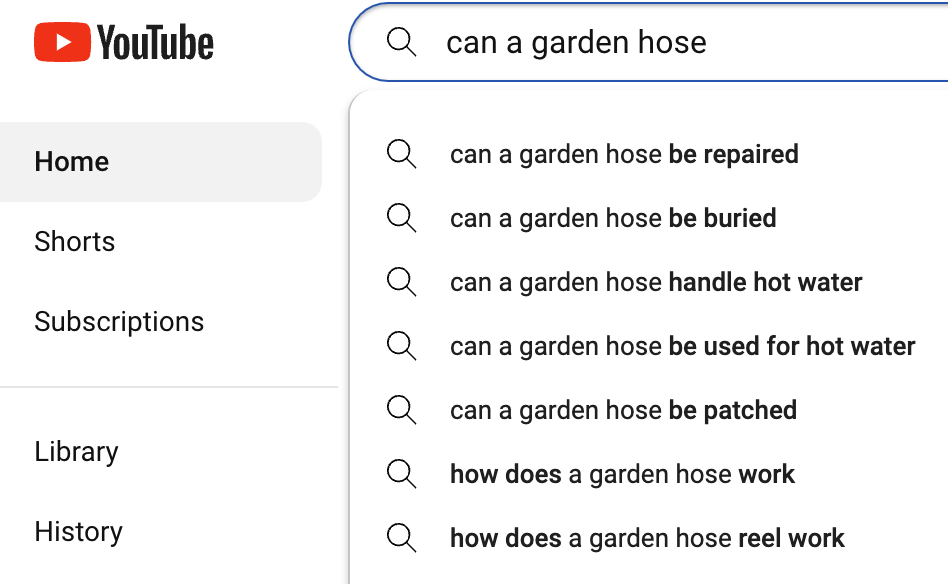
4. Google Autocomplete
Perhaps the most straightforward method, oogle’s autocomplete feature offers keyword suggestions based on popular searches. This tool can be used to understand the kind of language your target audience uses.
Don’t stop with your first search. Add variations with an extra letter or word – each new prompt variation will yield slightly different keywords.

5. Amazon Autocomplete
Amazon’s autocomplete feature provides excellent insight into consumer trends and product-focused keywords. This is especially beneficial if your services or products are in line with those sold on Amazon.
These queries will be product specific, but will give you a great idea what accessories, add ons, and additional features people are interested in buying (or learning more about).
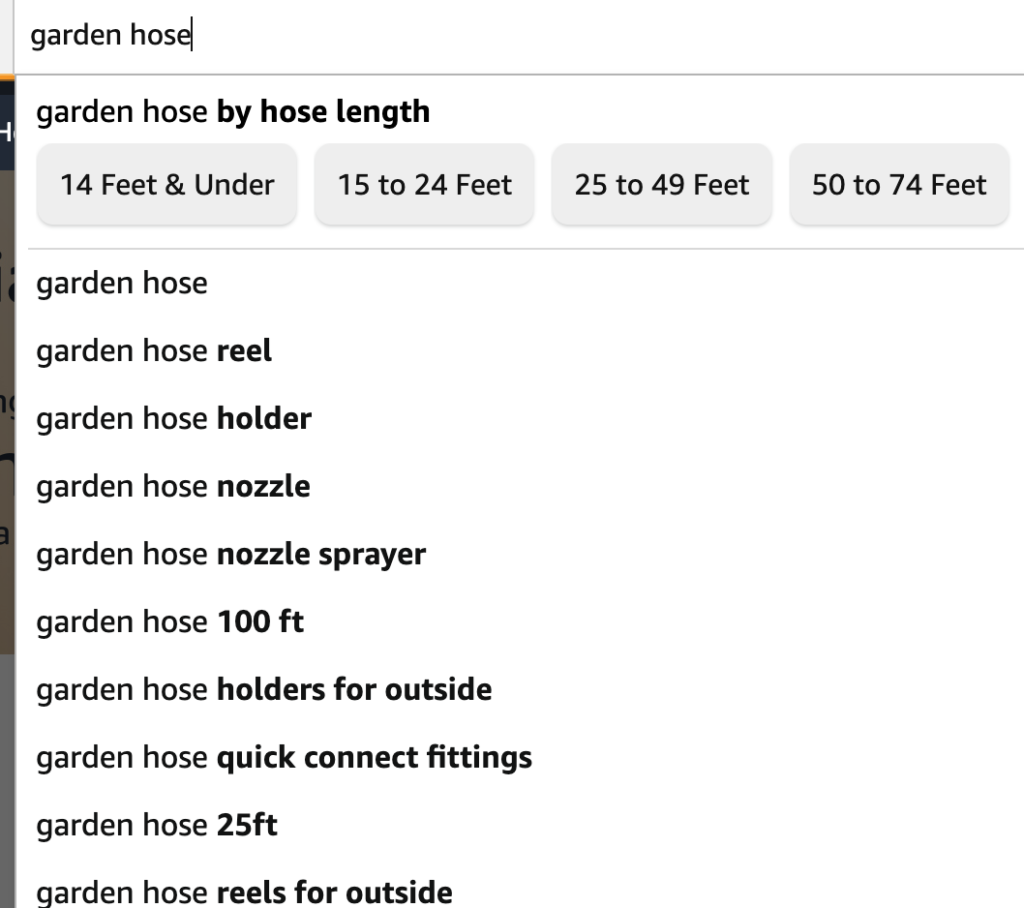
6. Walmart Autocomplete
Similarly, Walmart’s autocomplete feature can offer valuable keyword insights, particularly for goods-related industries.
Don’t sleep on Walmart – while they aren’t Amazon in terms of online shopping, they are a massive brand with a lot of ecommerce gold!
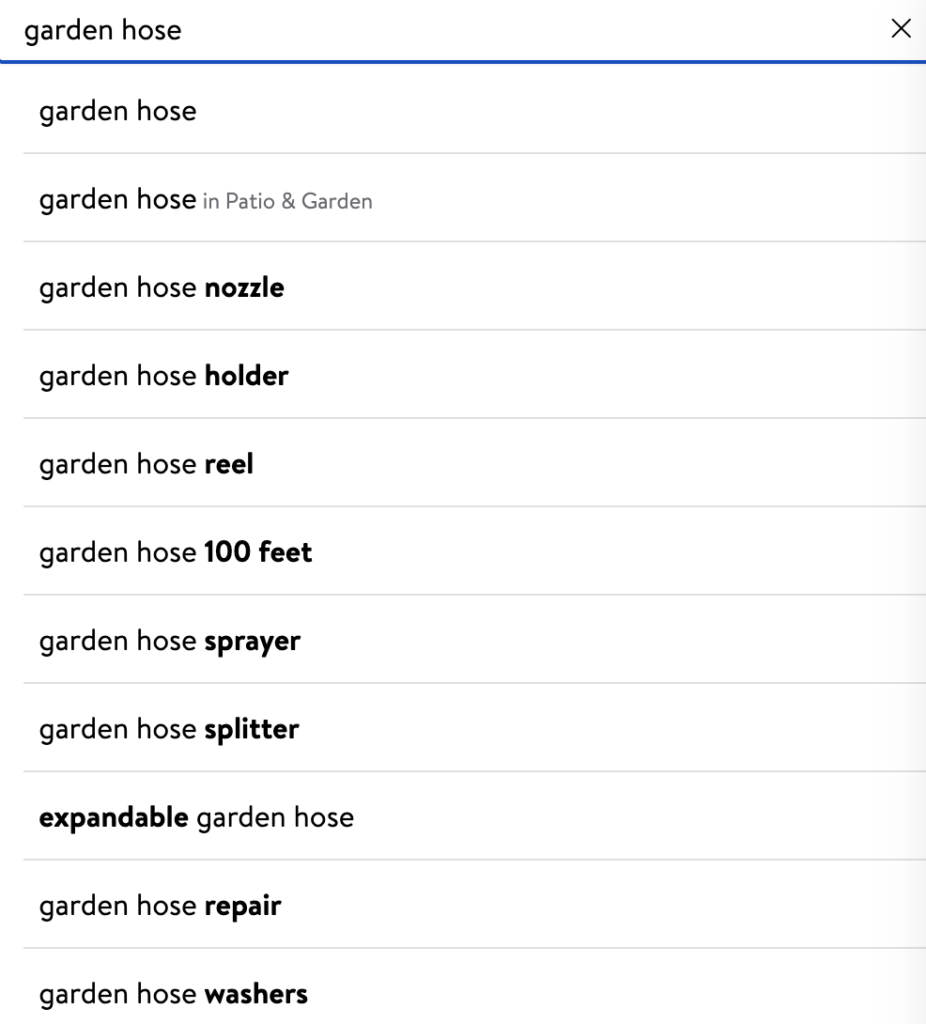
7. Google’s “People Also Ask” (PAA)
This Google feature offers a list of related questions under most search results, giving insight into what other queries users might have around a topic.
Pretty much a gold standard for keyword research, these queries are fantastic to use for building out topical authority.
Many are not related to your query, so make sure you do some filtering.
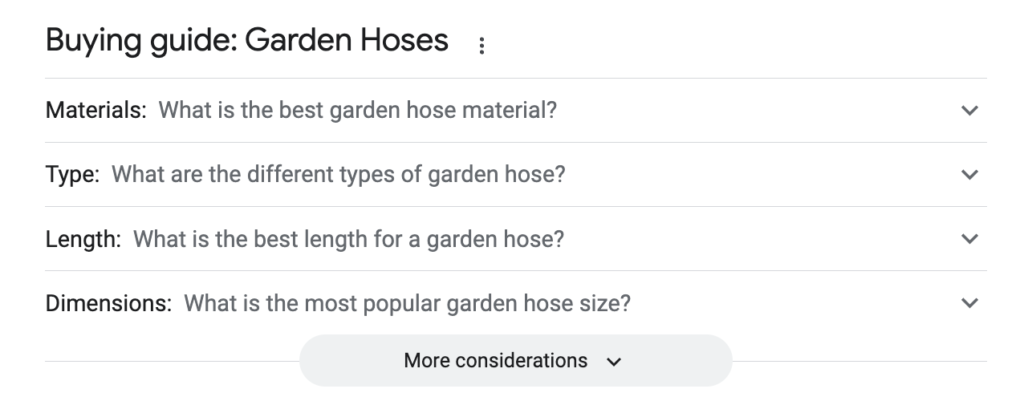
8. Google Trends
This tool allows you to explore the popularity of search terms over time. You can use Google Trends to understand seasonal keyword changes and identify rising topics.
Seasonality is a big factor in many niches, and yours is one of those, then it’s important to understand when queries are getting searched more than others.
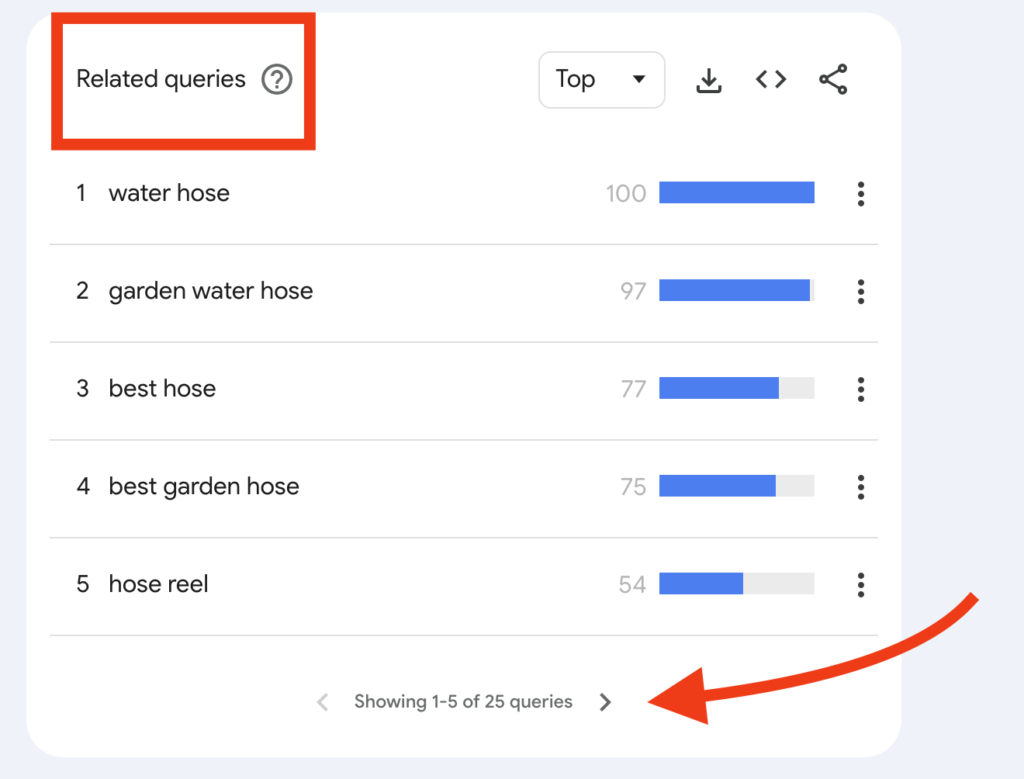
9. Google Search Console (GSC)
GSC offers a list of search terms that people use to find your website. By reviewing this list, you can better understand how your audience is currently finding you and how you can optimize your content to reach a wider audience.
Rather than show you a screenshot, dig deep by learning how to deep dive keyword research in GSC with Regex commands. I did a LONG tutorial for you!
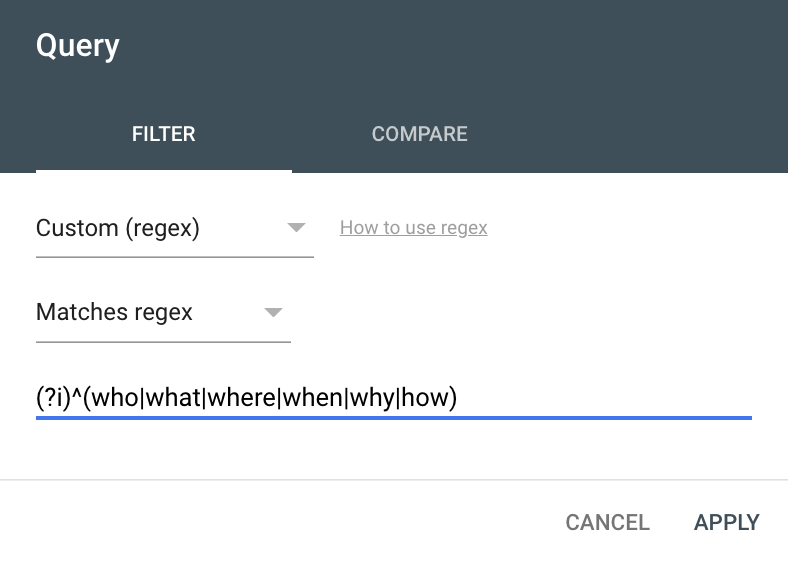
10. Industry Forums
By participating in industry forums (or just reading them), you can keep a pulse on the hot topics and concerns in your field. This engagement will offer keyword inspiration and potentially allow you to anticipate trending topics.
This is great to anticipate additional questions than readers have. You might answer the “first question” well in your article, but do you answer the follow up questions?
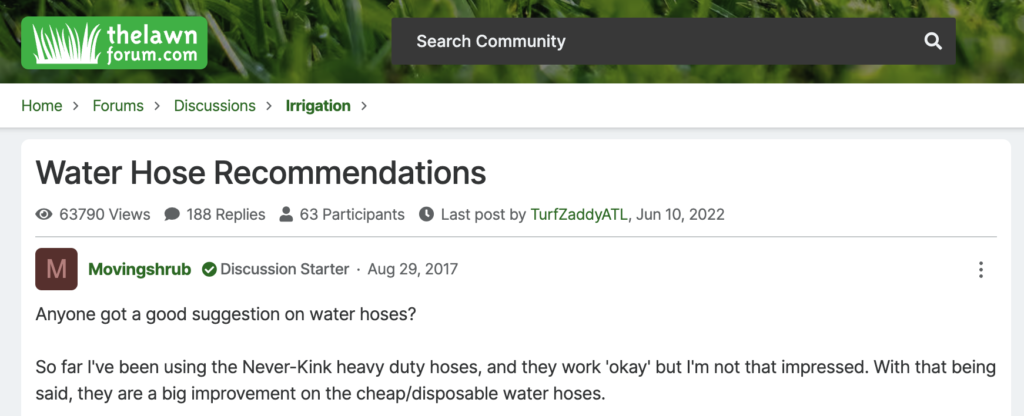
11. FAQ on Google Business Profile
Reviewing the Frequently Asked Questions section on Google Business Profiles will provide insight into common customer inquiries, offering another source for keyword gold.
These are usually people at the bottom of the buying funnel, and their questions are usually highly specific.

12. Questions in Blog Comments
Lastly, reviewing questions and discussions in the comments section of industry blogs can reveal new keyword opportunities.
This is a bit “old school”, as most people don’t really engage in content through blog contents any longer. But, it’s still worth looking into!
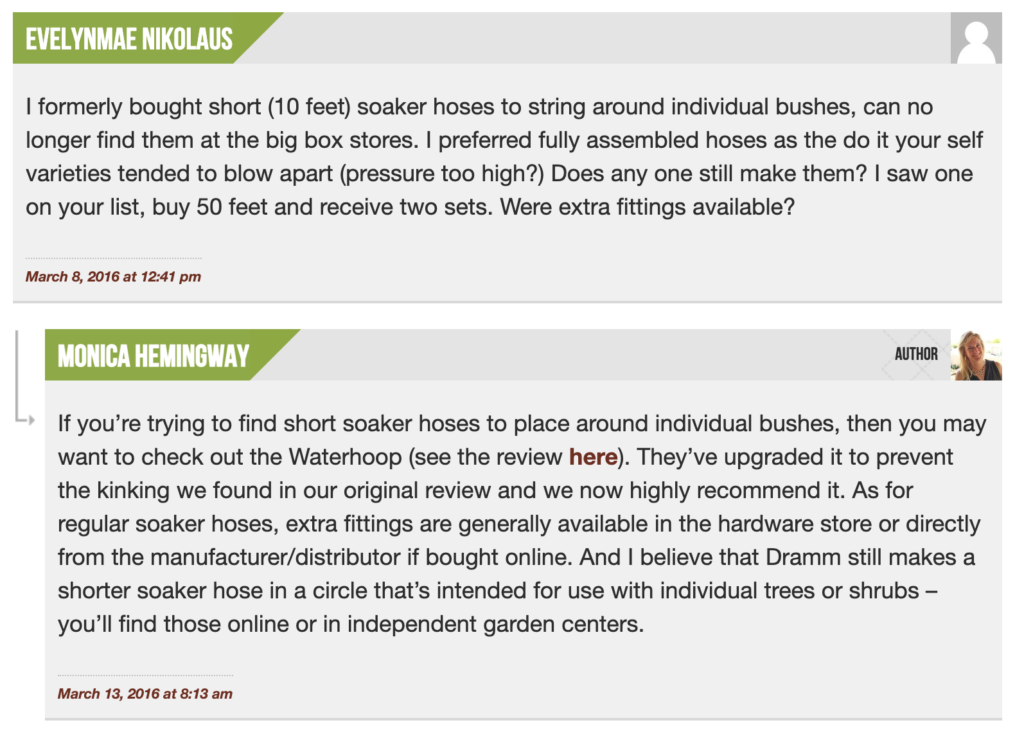
Did I miss any? Let me know in the comment section below!

